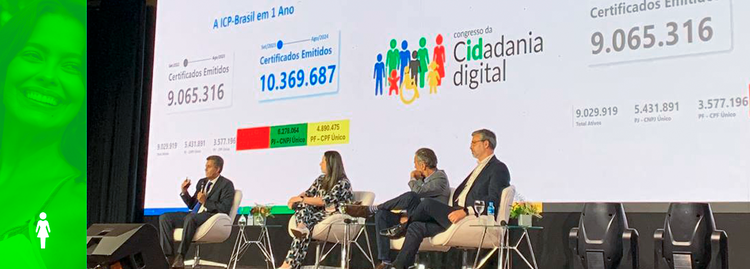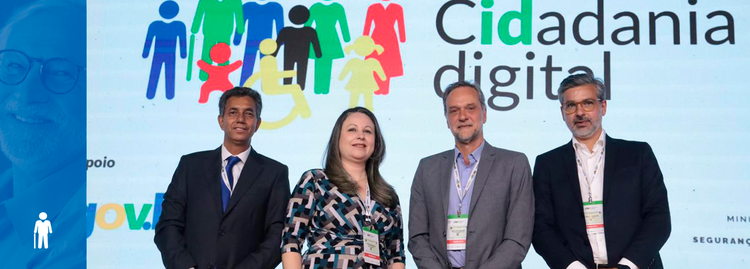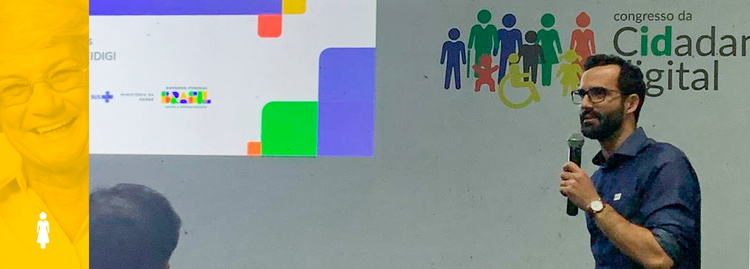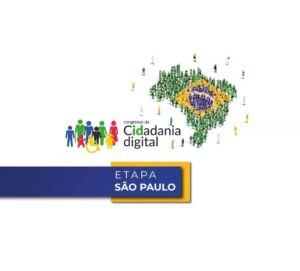
On Wednesday, September 18, the last day of the Digital Citizenship Congress took place at the Royal Tulip in Brasília. The event, promoted by the Brazilian Association of Digital Identification Technology Companies (ABRID), received support from the National Institute of Information Technology (ITI), the Ministry of Management and Innovation in Public Services (MGI), and other important government institutions such as the Ministry of Justice and Public Security (MJSP), Federal Police (PF), and Federal Revenue of Brazil (RFB).
Electronic Signature – Security and Modernity

During the panel, Pedro Cardoso, Director of Audit, Oversight, and Standardization at ITI, who was responsible for mediation, emphasized the importance of the speakers’ remarks regarding the correct connections between electronic signature technologies and security. The Executive Director of the National Association of Digital Certification (ANCD), Edmar Araújo, highlighted that ICP-Brasil (Brazilian Public Key Infrastructure) allows for different digital certificates to be used in an integrated manner, providing greater security in the digital environment.
Electronic Signature as a Tool for Digital Citizenship

The panel “Electronic Signature as a Tool for Digital Citizenship,” moderated by Pedro Cardoso, featured the presence of the ITI President, Enylson Camolesi; the Coordinator of Integrated Management at the Federal Revenue’s General Coordination of Technology and Security (COTEC), Danielle Carvalho; and the President of the ANCD Board, Leonardo Gonçalves.
Cardoso stated that, without two specific actors, ICP-Brasil would not exist: the Central Bank and the Federal Revenue. He also emphasized that all Brazilians need a digital certificate, from the lowest to the highest classes, and presented some figures from ICP-Brasil, reinforcing that the infrastructure has issued over ten million digital certificates.
The President of ITI, Enylson Camolesi, asserted that the state only exists because of the citizen and stressed the importance of the topic being addressed so thoroughly at the Congress of Digital Citizenship. He mentioned the challenges in democratizing citizens’ access to digital certificates in the country, adding that his primary goal is to replicate the digital certification models from Argentina and Spain, where digital certificates are provided free of charge.
He cited eIDAS (Electronic Identification, Authentication and Trust Services), the European Union (EU) system that establishes a regulatory framework for electronic identification and trust services, noting that citizens can obtain digital certificates quickly and easily within the European bloc. According to the ITI President, it is crucial for Brazil to follow the steps of international references in the field of digital certification since the issuance of certificates should occur at the moment the citizen needs them. Finally, he pointed out that a catalyst for the pursuit of democratizing digital certification is the National Identity Card (CIN), and the Federal Government’s goal is to identify all citizens of Brazil by 2030.
Workshop on Electronic Prescription and Dispensation

At the end of the day, the Workshop on Electronic Prescription and Dispensation was held, mediated by Joelmo Jesus de Oliveira, the General Coordinator of Innovation, Cooperation, and Projects at ITI. Luciana Maciel, the Technical Director of the Brazilian Agency for Support in SUS Management (AgSUS), discussed electronic prescription and dispensation in the context of timely care expansion, assistive technologies, and medical provision. She emphasized that the digitization of processes in the health sector faces several challenges, such as provision in special areas of the public health system, but that AgSUS has been delivering initiatives like the Digital Services Wallet for Primary Health Care (APS) and offering the EAD course on Effectiveness in Teleconsultation Provision.
Following that, Thiago Silvério, a specialist from the Controlled Products Management at the National Health Surveillance Agency (ANVISA), spoke about the electronic prescription and dispensation of controlled medications. Robson William de Melo Matos from the Ministry of Health addressed electronic prescription and dispensation within the National Health Data Network (RNDS).




